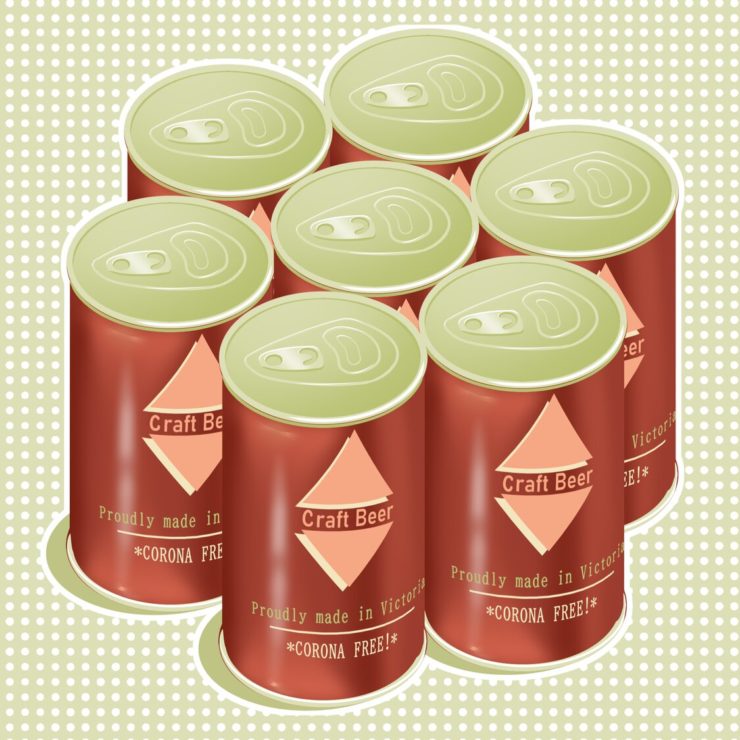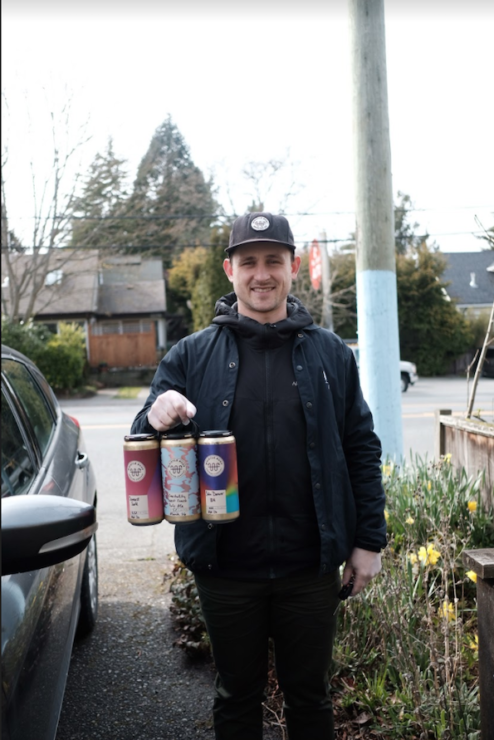Outdoor patios and delivery services have allowed breweries to stay in business

At the outset of COVID-19, B.C. craft breweries found themselves struggling to stay afloat due to the sudden closure of their taprooms and reduced production capacity due to physical distancing measures. However, these breweries are still kicking seven months later due to changes in business practices. From deliveries to extended patio space, B.C. craft brewers are finding ways to adapt and keep British Columbians supplied with their favourite local draught.
In March, as people sheltered inside their homes and businesses began closing their doors, breweries were faced with a 100 per cent loss in their draught sales as restaurants and bars suddenly transitioned to pick-up and delivery only. Additionally, many breweries lost most of their in-house revenue due to the closure of taprooms.
These closures left most breweries dependent on pick-up, delivery, and liquor store sales.
In April, the Canadian Craft Brewers Association (CCBA) warned that almost half of breweries surveyed had reported a greater than 50 per cent decrease in revenue for March. The CCBA noted that these losses were especially great for the 79 per cent of Canada’s craft breweries that opened in the last five years. The CCBA predicted that if conditions persisted, around a quarter of Canada’s craft breweries could close their doors for good by July.
Instead of resigning themselves to their fate, however, brewers around Victoria began modifying their business practices to fulfill two goals: staying open and keeping their employees safe and working.
“Immediately, we had a full staff meeting about how we were going to deal with the pandemic,” Sean Hoyne, owner and chief brewmaster of Hoyne Brewing, told the Martlet. “What we did was we rolled out protocols to stay safe within the company, and how we would interact with customers and the general public, and how we would behave within the business.”
These measures included splitting up the company into pods based on departments, and placing hand sanitizer throughout the brewery.
In regards to sales, Hoyne faced a dilemma as he had just put a down payment on an expensive new canning line, to supplement their retail bottles. Paying the rest of the installments for the machine had become even tougher with the outbreak of the pandemic. Additionally, the experts needed to put the machine together were unable to travel for the setup process. Hoyne ultimately decided to go ahead with the payments and embark on a DIY installation.
“We had to kind of figure out how to put this canning line together ourselves,” said Hoyne. “And we laboured over the next several months to build the canning line.”
Eventually, Hoyne’s gamble paid off as they were able to get the canning line up and running and, as a result, expand their sales of packaged beer. Hoyne estimates that the ratio between their draft and packaged sales has gone from being about equal to being a 30/70 distribution. He also says that the increase in packaged sales has allowed the brewery to almost maintain last year’s revenue and as such keep the brewery running at full capacity
“It’s looking like we’re going to pull through this thing,” said Hoyne.
For smaller breweries, the challenges are different from those of larger breweries like Hoyne. Many small breweries operate as taprooms and only produce enough beer to supply their in-person clientele. Many don’t market their beer to restaurants or liquor stores.
For Isaiah Archer, head of marketing for the microbrewery Whistle Buoy, the pandemic posed unique challenges. In response to closing their taproom, which made up most of their sales, the brewery started a delivery service and expanded pick-up services. These measures allowed Whistle Buoy to stay afloat while they awaited further instructions from health authorities.

In May, they were able to open up their patio to customers. This summer, the City of Victoria voted to allow breweries to expand their patios into public squares and parks. For Whistle Buoy, this meant that they could expand their Market Square patio past the limits of their previous liquor license as long as customers were still following safety protocols.
“That was great, we were able to get almost double the size of our patio,” said Archer. “Being able to get that was a real game-changer for us.”
While there were significant costs to re-opening, such as signage, hand sanitizer, and an extra employee to greet customers at the door, Archer says the brewery is actually exceeding their sales from 2019.
“[The patio extension] allowed us to actually start doing better than we’d done last year, as far as the numbers go,” he said.
As for the delivery service, Archer says that the brewery has been able to expand the service with the recent purchase of a branded van and the hiring of an employee specifically in charge of deliveries.
“The delivery program is still going five times a week,” Archer said. “We also purchased the delivery vehicle, which is a nice branded, hybrid Prius that we can get around town, mostly on electricity, which is great.”
Related: Award-winning Whistle Buoy Brewing Company founded on sustainability and local connections
Going into winter, Archer says that Whistle Buoy will be focusing more on deliveries as the weather gets cold and people want to stay at home. Outside of their self-managed deliveries, Whistle Buoy is also partnering with third-party delivery services such as DoorDash to bring beer to their customers’ homes.
For those still wanting to go out, Whistle Buoy has bought a tent and heaters to make the outdoor experience more comfortable.
As for new beers, Archer says that Whistle Buoy recently released a dry-hopped sour called “friggin vote” in an attempt to get their customers to get out and vote in the provincial election. Other beers currently available include a sour made with local black currants, an English mild made with Discovery coffee, as well as “Cheater Five” — an IPA with flavour notes of citrus, pine, and grapefruit.
For Hoyne, Whistle Buoy, and many other B.C. craft breweries, the pandemic has bred innovation that has in turn allowed them to remain in business — however, they are the first to acknowledge they aren’t out of the woods yet.
“Everybody’s just kind of doing the best they can and getting through,” said Hoyne. “Trying to stay safe and healthy and yet, still trying to pay the rent.”







